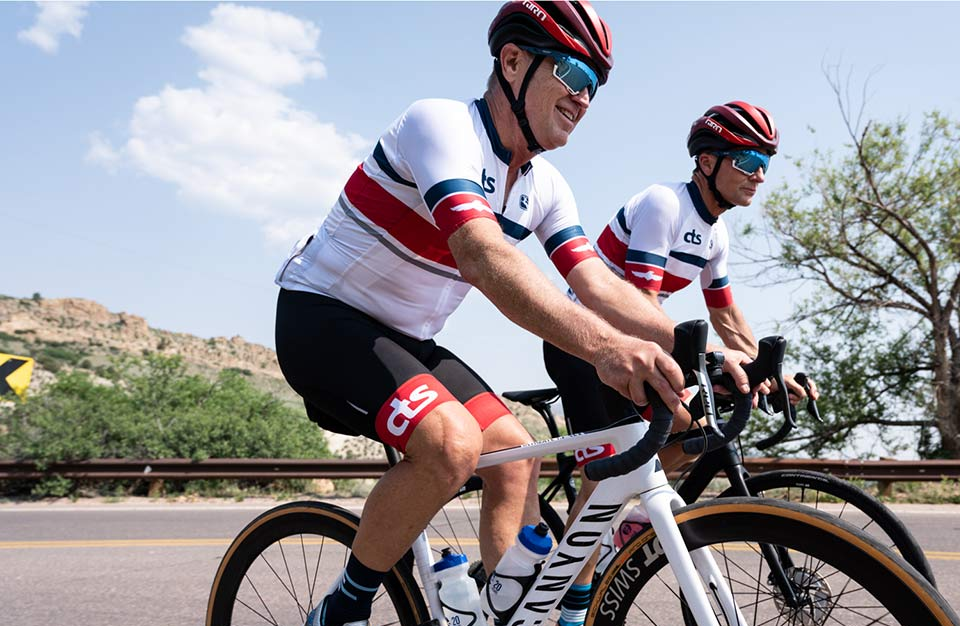Olympic Coach’s Tips for Preparing for a Once-in-a-Lifetime Competition
Most Olympic athletes have only one chance to get it right, so naturally they pour loads of time and effort and thought into preparation. But you don’t have to go to the Olympics to face the pressure and opportunity of a once-in-a-lifetime sporting experience

For many athletes ‘bucket list’ type goals like racing across the United States, mountain biking the Continental Divide Trail, riding the major passes of the Alps, Pyrenees, and Dolomites; or riding a 200-mile gravel race are also adventures that may only be tackled once. My coaches and I have prepared athletes for all these challenges and many more, and here’s what you need to know about getting ready for a once-in-a-lifetime event.
Get unbalanced, thoughtfully
We spend a lot of time trying to find balance across training, career, family, and other priorities. But it’s important to realize that life is seasonal, and during certain seasons of life it’s okay – even necessary – for your life to be unbalanced. When you were just starting in your career you probably put work ahead of relationships for a while. When you had kids, your priorities likely shifted way out balance for a bit. Pursuing an Olympic dream often means throwing the balance out the window altogether for at least a year. If you’ve decided to prepare for a once-in-a-lifetime endurance challenge, take the time to plan how you’re going to unbalance your life. You’re going to want to open up more space in your life to pursue this massive goal, and to do that successfully you want to do it with intention. Make sure your family and co-workers and friends know what’s coming so they can be supportive and you can avoid conflicts down the line.
Train hard, and intelligently
One of the biggest tragedies I see is an athlete who sets a massive goal, rearranges their life to devote time and energy to it, and then half-asses the training, nutrition, and recovery required to accomplish it. Sometimes it means the goal wasn’t really that important to them in the first place, but other times it means they’ve underestimated the compounding benefits of being consistent with workouts, deliberate with recovery strategies, and focused on the fuel they take in. Staying focused for many months or over the course of years is a major challenge, which is why the goal must be extremely valuable to start with. It must be something you want so much that you will stay committed to it through the inevitable low points.
Don’t chase too many maybes
Remember the athletes with red circles all over their bodies from cupping during the 2016 Olympic Games? It was all anyone could talk about for a while, and then it largely disappeared. Every Olympic cycle there’s some gadget or technique that seems like it’s going to be game-changing. Most are rejiggered versions of older bio-plausible ideas that didn’t work before, but the hope is that they might now because of newer technology. Very few of them last. Sports science and technology are always advancing and there’s plenty of room for innovation, but I always tell athletes not to forego certainties by chasing maybes. This is even more important for amateur athletes because they have more room to improve before reaching the point of diminishing returns. Great performances come first from maximizing the outcomes from fundamental training. Then, and only then, should athletes chase “maybe it will work” improvements.
Create redundancies and contingencies
You don’t want your once-in-a-lifetime cycling event derailed by a broken derailleur hanger. You don’t want to miss your event because of a cancelled flight. What are you going to do if your luggage gets lost or your bike doesn’t make the connection? For the Olympics, getting the flights and gear to arrive on time is rarely an issue, but athletes and teams make sure they have backups of their backups of mission critical pieces of equipment. I have written previously about tips for traveling to a cycling event, and it is also important to plan contingencies. If you’re planning on using the hotel internet to download courses, have a backup plan for when you arrive and find out the hotel wifi is down. Even if your event features aid stations with fluids and food, plan ahead in case they run out.
FREE 14 DAY MEMBERSHIP TRIAL
Gran Fondo Guide fans, click on the image above and get TrainRight Membership for a 14 day no obligation trial. TrainRight Membership comes with a 30-day money-back guarantee!
Don’t overcook the sauce
When an event has captivated your imagination for years, the final months and weeks before the start can be the toughest. In the final month there is more you can do to derail your performance than enhance it. Despite this, when athletes get antsy and anxious they often respond by training more rather than backing off and trusting all the training they have already done. The waiting is the hardest part, particularly when you have to arrive at the event venue days before the start. Athletes milling around in Chamonix, France before the Ultra Trail du Mont Blanc run laps around a local track–even though it’s the least event-specific activity they could do (short hikes on the surrounding trails would be better). Olympians start to go stir crazy in the Olympic Village and in the practice venues, especially when they see athletes from another country using some new gadget or exercise.
What I try to impress on athletes is that no amount of extra work in the final two weeks before an event is going to measurably improve your performance. That timeline is too short for the normal time course of physiological adaptation. What you can affect in those two weeks is how well rested you are, how well you are keeping your performance capacities primed with short training sessions, and how psychologically prepared you are for competition.
Mentally rehearse your worst nightmares
Mental preparation is not just about visualizing success. One of the most important uses of mental skills training is to prepare for the worst. And by worst I mean the stuff of nightmares. From the safety of your living room, conjure the worst-possible scenarios related to crashes, illness, injuries, broken equipment, navigational errors, etc. Start with moderate and simple scenarios and work up to multiple, simultaneous, and increasingly serious failures. Take your time and include as much detail as you can. Now work through the solutions that will keep you in the race, get you to the finish line, or preserve your chances of winning. The exercise isn’t meant to fill you with dread, but rather to reduce your fear of adversity and help you make good decisions more quickly in bad situations.
Rely on your training
Athletes must walk a fine line between being motivated by the magnitude of the Olympics and letting the hype be overwhelming. The arousal that comes from anticipation can be harnessed to produce extraordinary performances, but even that takes practice. Elite athletes have experience performing on national and international stages, so the step to the Olympics – while still huge – is manageable. Despite this experience, some athletes will thrive and others will falter in the shadow of the Olympic Rings. I don’t like advising athletes to think of a major competition as “just another race” or “just like any other workout”. It’s not. You don’t want to dismiss the intense energy that can only be found on race day; you just want to realize that you are the same athlete – with the same strengths and skills and successes – under the bright lights that you were last week. Absorb that energy, ride the waves of applause, soak in the moment, and let that energy elevate your ability to focus and execute on all the training that got you to that moment.
Oh… and remember to have fun, because some of the best things in life only happen once!
To find out more, please visit: https://trainright.com/olympic-coach-tips-for-preparing-for-a-once-in-a-lifetime-competition/
